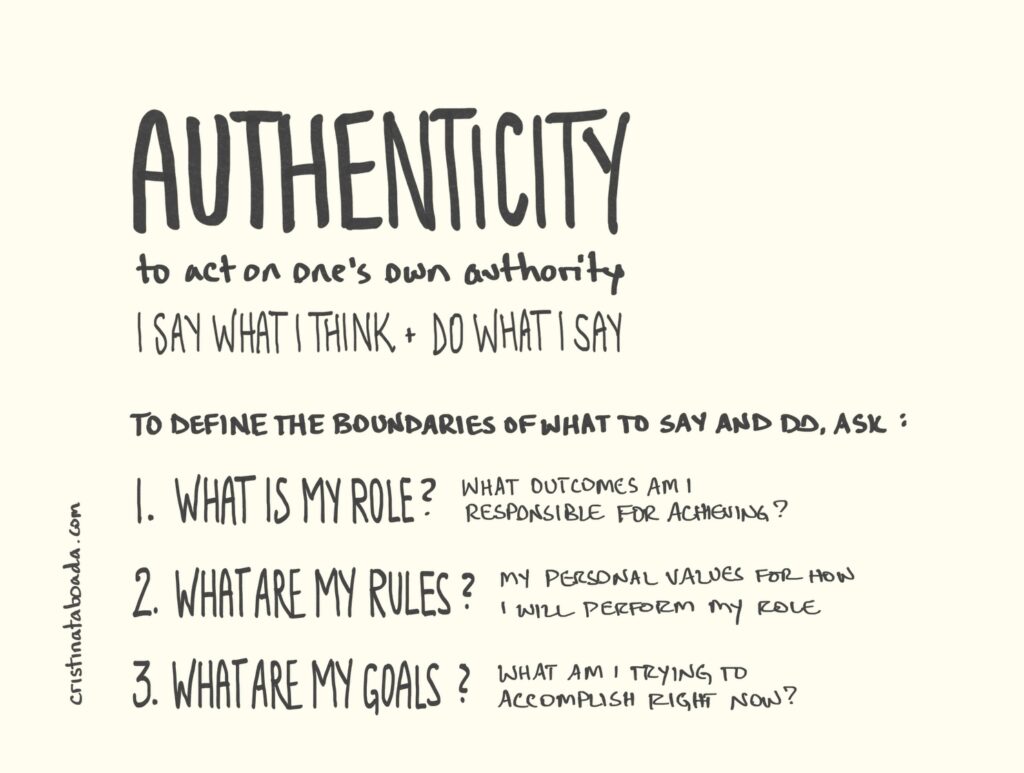Beyond Transparency: The Discipline Of Authenticity
The operational definition of authenticity is to say what we think and do what we say. This interpretation of authenticity is often misconstrued as permission—even obligation—to unleash our unfiltered thoughts on the world.
In its deeper sense, to act authentically is to act on one’s own authority. Stemming from the Greek autos meaning “self” and hentes meaning “doer” or “being,” authenticity transcends mere transparency. As adults, it entails a thoughtful, intentional, forward-looking, strategic posture. Acting authentically requires us to determine what is appropriate to the situation based on our aims, and then to manage accordingly.
Defining the boundaries of authentic action involves asking critical questions:
- WHAT IS MY ROLE, and what am I responsible for achieving?
- WHAT ARE MY RULES, the personal values guiding my performance?
- WHAT ARE MY GOALS, what am I trying to accomplish now?
To act authentically is to hold ourselves accountable to these considerations. While oversharing in the name of authenticity may seem defensible, it places the burden on others and lacks the discipline inherent in mature authenticity.
The next time you encounter less than 100% transparency, consider the possibility that it reflects discipline rather than deception. Authenticity is not found in unrestricted disclosure but in deliberate, disciplined reserve.

ABOUT PREDICTLY
predictly is a platform to share real-life stories and practical insights that develop your predictive intuition.
Each predictly post explores the gaps between what we intend to do and actually do, using behavioral models to anticipate common misunderstandings in human behavior and respond early.